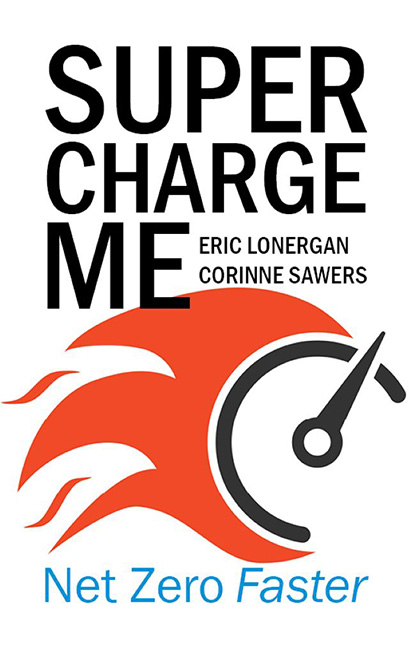Book contents
- Frontmatter
- Contents
- Acknowledgements
- Introduction: A Failure of the Mind
- 1 Supercharging: What is it?
- 2 Corporate Philosophers
- 3 Money Gets the Message
- 4 Supercharge the Individual
- 5 Supercharge the Nation
- 6 Supercharge the World
- 7 Why This is Not a Book About Trees
- Conclusion: Speaking With One Voice
- Notes
- Index
3 - Money Gets the Message
Published online by Cambridge University Press: 20 January 2024
- Frontmatter
- Contents
- Acknowledgements
- Introduction: A Failure of the Mind
- 1 Supercharging: What is it?
- 2 Corporate Philosophers
- 3 Money Gets the Message
- 4 Supercharge the Individual
- 5 Supercharge the Nation
- 6 Supercharge the World
- 7 Why This is Not a Book About Trees
- Conclusion: Speaking With One Voice
- Notes
- Index
Summary
Corinne: Eric, you have analysed the effects of the environmental wave in financial markets. Can you give us a snapshot of what you see, and why you think it is happening? Then we can get to the crux of the matter. How do we harness these forces for supercharging the green transition?
Eric: A focus on environmental investing has gripped financial markets, particularly in Europe. Huge changes are occurring, in a way that is very similar to your description of corporate change. There is evidence of environmental factors affecting stock prices and bond yields. You identify this as a motivation for companies to change behaviour. I couldn't agree more. CEOs and boards obsess on their stock price, not least because it affects their personal finances.
Corinne: Why is this happening now?
Eric: There are three reasons. Social norms are changing, regulatory changes have been introduced, and stocks perceived to be environmentally friendly have outperformed the market.ESG stands for “Environmental, Social and Governance”, and has become the buzzword in finance for investing with a conscience. The trend completely mirrors your description of the change in corporate culture. The shift in beliefs in the past two years has been rapid. It feels similar to the dot-com boom when in the space of a couple of years something that was originally the domain of geeks started to dominate all discourse. The same thing has happened with green investing. Two years ago, clients rarely raised the issue of sustainability within investment portfolios. Now it comes up in every meeting. If we go back ten years, the only serious work in this area was in the area of “impact investing”.
Corinne: Impact investing targets the social return as well as a financial return.
Eric: That's right. Prior to 2019, investors who were focused on the environmental and social effects of investments were operating in a niche. The big change is in public markets. Public markets include the stock market and the bond market, where securities are listed, priced and traded. Outside of the banking system, public markets are by far the largest part of the financial sector. The value of global stock markets exceeds $100 trillion. Bond markets, where the world's largest businesses and governments borrow, are even larger than this. Pension funds, insurance companies and international investors invest trillions of dollars globally in these markets.
- Type
- Chapter
- Information
- Supercharge MeNet Zero Faster, pp. 59 - 80Publisher: Agenda PublishingPrint publication year: 2022



